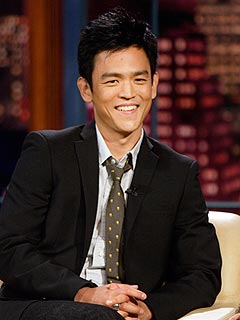In a stunning example of when treatment might be worse than the disease, a large review of Medicare records finds that older people with small kidney tumors were much less likely to die over the next five years if doctors monitored them instead of operating right away.
Even though nearly all of these tumors turned out to be cancer, they rarely proved fatal. And surgery roughly doubled patients' risk of developing heart problems or dying of other causes, doctors found.
After five years, 24 percent of those who had surgery had died, compared to only 13 percent of those who chose monitoring. Just 3 percent of people in each group died of kidney cancer.
The study only involved people 66 and older, but half of all kidney cancers occur in this age group. Younger people with longer life expectancies should still be offered surgery, doctors stressed.
The study also was observational — not an experiment where some people were given surgery and others were monitored, so it cannot prove which approach is best. Yet it offers a real-world look at how more than 7,000 Medicare patients with kidney tumors fared. Surgery is the standard treatment now.
"I think it should change care" and that older patients should be told "that they don't necessarily need to have the kidney tumor removed," said Dr. William Huang of New York University Langone Medical Center. "If the treatment doesn't improve cancer outcomes, then we should consider leaving them alone."
He led the study and will give results at a medical meeting in Orlando, Fla., later this week. The research was discussed Tuesday in a telephone news conference sponsored by the American Society of Clinical Oncology and two other cancer groups.
In the United States, about 65,000 new cases of kidney cancer and 13,700 deaths from the disease are expected this year. Two-thirds of cases are diagnosed at the local stage, when five-year survival is more than 90 percent.
However, most kidney tumors these days are found not because they cause symptoms, but are spotted by accident when people are having an X-ray or other imaging test for something else, like back trouble or chest pain.
Cancer experts increasingly question the need to treat certain slow-growing cancers that are not causing symptoms — prostate cancer in particular. Researchers wanted to know how life-threatening small kidney tumors were, especially in older people most likely to suffer complications from surgery.
They used federal cancer registries and Medicare records from 2000 to 2007 to find 8,317 people 66 and older with kidney tumors less than 1.5 inches wide.
Cancer was confirmed in 7,148 of them. About three-quarters of them had surgery and the rest chose to be monitored with periodic imaging tests.
After five years, 1,536 had died, including 191 of kidney cancer. For every 100 patients who chose monitoring, 11 more were alive at the five-year mark compared to the surgery group. Only 6 percent of those who chose monitoring eventually had surgery.
Furthermore, 27 percent of the surgery group but only 13 percent of the monitoring group developed a cardiovascular problem such as a heart attack, heart disease or stroke. These problems were more likely if doctors removed the entire kidney instead of just a part of it.
The results may help doctors persuade more patients to give monitoring a chance, said a cancer specialist with no role in the research, Dr. Bruce Roth of Washington University in St. Louis.
Some patients with any abnormality "can't sleep at night until something's done about it," he said. Doctors need to say, "We're not sticking our head in the sand, we're going to follow this" and can operate if it gets worse.
One of Huang's patients — 81-year-old Rhona Landorf, who lives in New York City — needed little persuasion.
"I was very happy not to have to be operated on," she said. "He said it's very slow growing and that having an operation would be worse for me than the cancer."
Landorf said her father had been a doctor, and she trusts her doctors' advice. Does she think about her tumor? "Not at all," she said.
___
Online:
Kidney cancer info: http://www.cancer.net/cancer-types/kidney-cancer
and http://www.cancer.gov/cancertopics/types/kidney
Study: http://gucasym.org
___
Marilynn Marchione can be followed at http://twitter.com/MMarchioneAP












